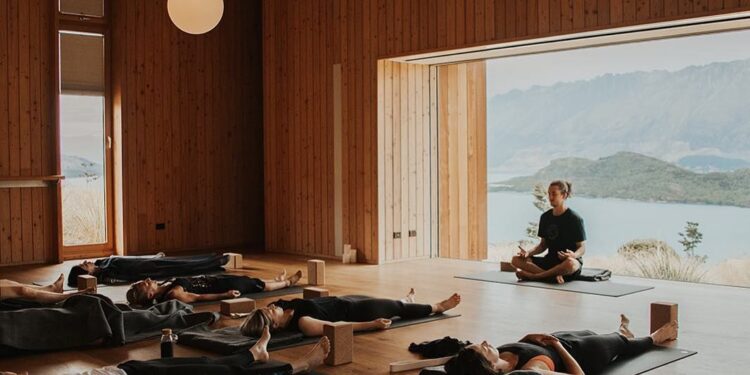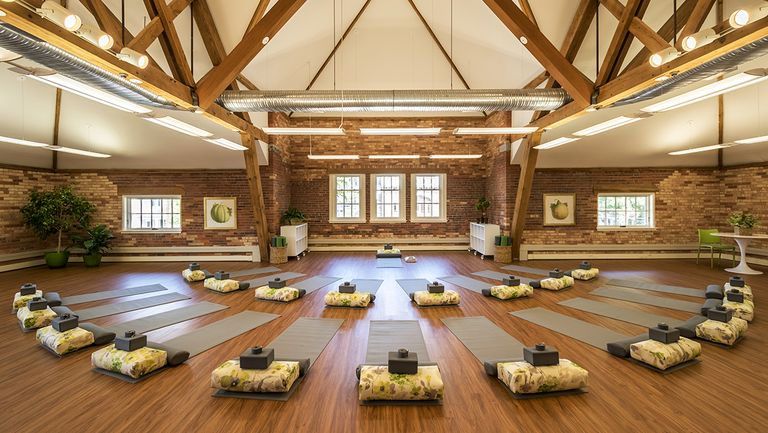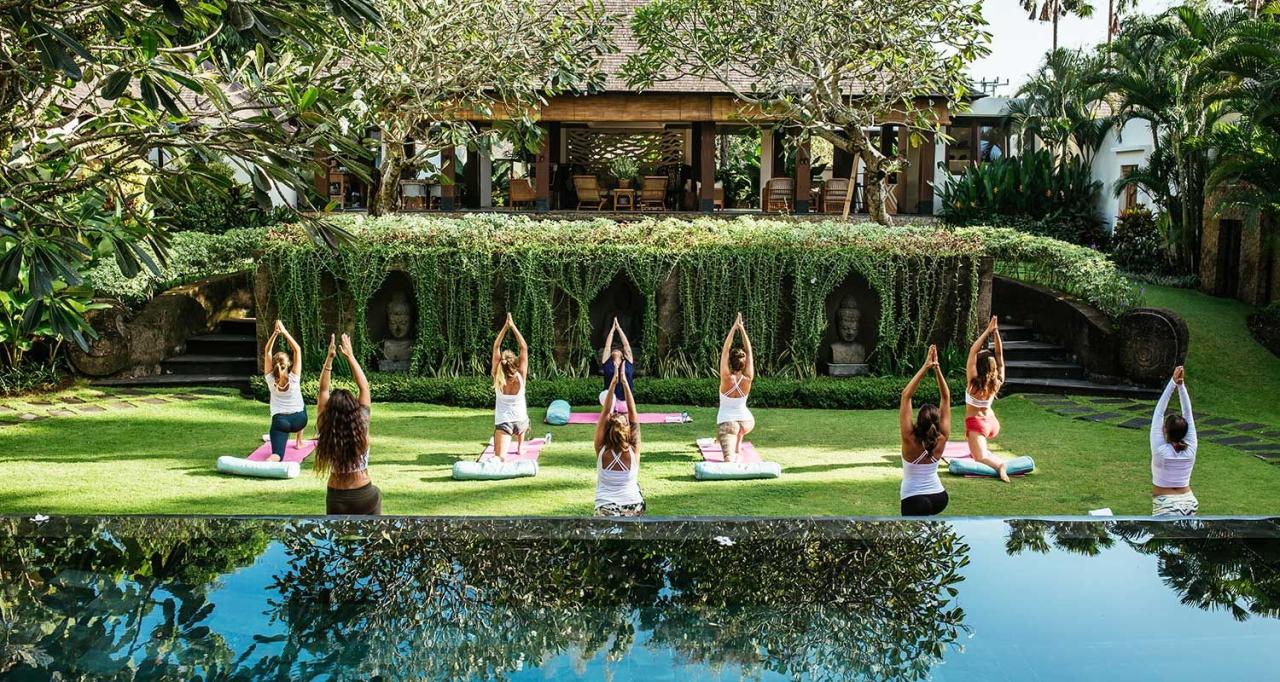Wellness Hotels: Mind, Body Retreats
The concept of a vacation has dramatically evolved. No longer content with merely escaping daily routines, modern travelers, particularly those seeking luxury experiences, are increasingly prioritizing their well-being. This shift has given rise to the booming phenomenon of wellness hotels and mind, body retreats, dedicated sanctuaries designed to rejuvenate, restore, and transform. These are not just places to relax; they are immersive environments crafted to promote holistic health, offering everything from advanced medical diagnostics to ancient spiritual practices. This comprehensive article will explore the multifaceted world of wellness hotels, delving into their unique offerings, the driving forces behind their popularity, and what discerning travelers can expect from these havens of health and tranquility. We’ll examine how these retreats cater to diverse needs, from stress reduction and digital detox to intensive fitness and preventative health, making them a cornerstone of the future of luxury travel.
The Genesis of Wellness Travel: Beyond the Spa Treatment
For decades, “wellness” in travel was largely confined to a hotel’s spa, offering massages and perhaps a sauna. While these remain cherished amenities, the modern wellness hotel extends far beyond. It’s about a complete lifestyle integration, addressing the interconnectedness of physical, mental, emotional, and spiritual health. This holistic approach is driven by a global increase in stress, burnout, and a growing awareness of preventative health. People are investing in their well-being, recognizing that health is the ultimate luxury.
A. Holistic Health Philosophies
At the core of every leading wellness hotel is a foundational philosophy that views health as a comprehensive state, not just the absence of illness. This often involves:
- Integrative Medicine: Many resorts combine Western medical approaches with traditional healing modalities. This could mean a doctor-led health assessment followed by recommendations for acupuncture, herbal remedies, or specific dietary plans. The aim is to treat the whole person, addressing root causes rather than just symptoms.
- Mind-Body Connection: Acknowledging that mental and emotional states profoundly impact physical health, these retreats emphasize practices that foster inner peace and mental clarity. This includes mindfulness, meditation, breathwork, and various forms of therapy or coaching designed to manage stress and promote emotional balance.
- Preventative Health Focus: Rather than reactive treatment, wellness hotels are increasingly focusing on education and lifestyle changes that prevent illness. This involves workshops on nutrition, personalized fitness training, stress management techniques, and sleep optimization programs. The goal is to equip guests with tools for sustained well-being long after they leave the retreat.
B. The Demand for Personalization
Just as in other luxury travel sectors, customization is key in wellness. Travelers are not looking for a generic program; they want experiences tailored precisely to their individual needs, goals, and even their current state of health. This manifests as:
- Individualized Consultations: Upon arrival, guests often undergo comprehensive assessments with wellness experts, nutritionists, fitness trainers, or even doctors. These consultations form the basis for a personalized itinerary.
- Tailored Programs: Whether the goal is weight management, stress reduction, athletic performance enhancement, or recovery from burnout, programs are custom-built, selecting specific treatments, activities, and dietary plans to match.
- Flexible Schedules: While programs provide a framework, guests often have the flexibility to adjust their daily schedule, choosing from a menu of activities and treatments based on how they feel each day.
Pillars of the Wellness Hotel Experience
Beyond the philosophical underpinnings, wellness hotels distinguish themselves through a sophisticated array of offerings designed to cater to every aspect of health and restoration.
A. Advanced Therapies and Medical Wellness
Modern wellness hotels are increasingly incorporating cutting-edge medical and therapeutic advancements, moving beyond traditional spa treatments into a realm of genuine health optimization.
- Diagnostic Testing: Some high-end wellness centers offer comprehensive diagnostic tests, including blood work, genetic testing, heavy metal analysis, and gut microbiome mapping. These insights help tailor highly specific wellness plans.
- IV Drip Therapy: For rapid revitalization, nutrient-rich intravenous drips are common, delivering vitamins, minerals, and amino acids directly into the bloodstream to boost energy, improve immunity, or aid recovery.
- Cryotherapy and Hydrotherapy: Treatments involving extreme cold (cryotherapy chambers) or water (hydrotherapy pools, contrast showers, Kneipp baths) are used for muscle recovery, inflammation reduction, circulation improvement, and detoxification.
- Biohacking Technologies: Resorts are investing in technologies like hyperbaric oxygen therapy, red light therapy, PEMF (Pulsed Electromagnetic Field) therapy, and floatation tanks to optimize cellular function, accelerate healing, and enhance mental clarity.
- Sleep Optimization Programs: Recognizing the critical role of sleep, these programs may include sleep studies, personalized soundscapes, specialized bedding, light therapy, and behavioral coaching to improve sleep quality.
B. Nourishing Cuisine and Nutritional Guidance
Food is a cornerstone of the wellness journey, approached as medicine and fuel rather than mere sustenance.
- Farm-to-Table Philosophy: Many hotels source ingredients locally, often from their own organic gardens, ensuring freshness, purity, and a connection to the land. This extends to supporting local farmers and sustainable practices.
- Personalized Dietary Plans: Based on initial consultations and any diagnostic tests, guests receive customized meal plans. This could include anti-inflammatory diets, detox protocols, plant-based diets, allergen-free options, or balanced macro-nutrient plans.
- Expert Nutritionists: Registered dietitians and nutritionists are on staff to provide one-on-one consultations, cooking classes, and educational workshops, empowering guests with knowledge for healthy eating beyond their stay.
- Mindful Eating Practices: Encouraging guests to eat slowly, savor flavors, and pay attention to hunger and fullness cues, fostering a healthier relationship with food.
C. Movement and Fitness Programs
Physical activity is tailored to individual needs, promoting strength, flexibility, endurance, and joyful movement.
- Diverse Fitness Offerings: Beyond standard gym equipment, expect a wide array of classes including yoga (various styles), Pilates, functional training, barre, martial arts, dance, and high-intensity interval training (HIIT).
- Outdoor Activities: Leveraging their natural surroundings, many retreats offer activities like hiking, mountain biking, swimming (in natural bodies of water or Olympic-sized pools), stand-up paddleboarding, kayaking, and guided nature walks.
- Personal Training: One-on-one sessions with certified trainers who can design custom routines, provide corrective exercises, and offer motivational coaching.
- Specialized Movement Therapies: Including Feldenkrais, Alexander Technique, or specific rehabilitation exercises for injury recovery or mobility improvement.
D. Mindfulness, Meditation, and Spiritual Practices
Cultivating inner peace and mental resilience is a critical component, often integrated throughout the day.
- Guided Meditation Sessions: From beginner-friendly mindfulness to advanced transcendental meditation, offered in serene spaces like meditation gardens, sound domes, or dedicated studios.
- Yoga and Breathwork (Pranayama): Classes focusing not just on physical postures but on connecting breath to movement and calming the nervous system.
- Sound Healing: Using gongs, singing bowls, or tuning forks to create vibrations that promote deep relaxation and altered states of consciousness.
- Forest Bathing (Shinrin-Yoku): Guided walks in natural environments, encouraging sensory awareness and a deeper connection with nature, proven to reduce stress hormones.
- Spiritual Guidance: Some retreats offer access to spiritual advisors, life coaches, or even shamans for those seeking deeper introspection or personal growth.
The Environment: Design, Location, and Ambiance
The physical setting of a wellness hotel is meticulously crafted to support the journey of healing and rejuvenation. It’s an integral part of the therapy.
A. Harmonious Design and Architecture
The aesthetics are consciously designed to promote a sense of calm, tranquility, and connection with nature.
- Biophilic Design: Incorporating natural elements like wood, stone, abundant natural light, and indoor plants to mimic outdoor environments, which research shows reduces stress and enhances well-being.
- Minimalist and Serene Interiors: Clutter-free spaces, neutral color palettes, and natural textures create a calming atmosphere, allowing the mind to rest.
- Soundscaping and Aromatherapy: Controlled acoustic environments with soothing background sounds or silence, coupled with natural essential oils to create a pleasant and relaxing olfactory experience.
- Dedicated Wellness Spaces: Purpose-built areas for meditation, yoga, treatment rooms, and communal relaxation zones, all designed to optimize their specific function.
B. Idyllic and Secluded Locations
The choice of location is paramount, often in areas renowned for their natural beauty and tranquility, far removed from urban noise and pollution.
- Coastal Retreats: Resorts nestled along pristine beaches or rugged coastlines, offering the calming influence of the ocean, opportunities for water sports, and fresh sea air.
- Mountain Sanctuaries: High-altitude retreats offering clean crisp air, stunning panoramic views, and challenging hiking trails, promoting physical activity and mental clarity.
- Lakeside or Forest Hideaways: Secluded properties surrounded by lush forests or serene lakes, perfect for forest bathing, kayaking, and undisturbed contemplation.
- Desert Oases: Retreats in arid, peaceful desert landscapes, offering unique beauty, clear skies for stargazing, and a profound sense of solitude.
C. Atmosphere and Community
Beyond the physical elements, the intangible atmosphere of a wellness hotel contributes significantly to the guest’s experience.
- Sense of Calm: From the moment of arrival, an intentional atmosphere of peace and quiet, often enforced by policies like “digital detox” zones or quiet hours.
- Supportive Community: While highly personalized, many retreats foster a sense of community among guests, offering group activities, communal dining options, and shared experiences that build connection and mutual support.
- Expert Staff: Highly trained and empathetic staff, from wellness coaches to therapists and medical professionals, who are genuinely invested in guest well-being and provide discreet, intuitive service.
- Digital Detox Options: Encouraging or even requiring guests to unplug from their devices, often providing secure lock-boxes for phones, creating a truly immersive and distraction-free environment for self-reflection.
The Business of Bliss: Economic and Market Trends
The wellness tourism market is a rapidly expanding segment of the global tourism industry, significantly outpacing general tourism growth. This growth is fueled by an increasing consumer awareness of holistic health and a willingness to invest in experiences that improve quality of life.
A. Market Growth and Investment
The global wellness tourism market was valued at hundreds of billions of dollars prior to the pandemic and is projected to reach well over a trillion dollars in the coming years. This robust growth attracts significant investment.
- New Property Development: Major hotel chains and independent luxury brands are heavily investing in developing new wellness-focused properties or converting existing ones.
- Specialized Wellness Offerings: Even non-wellness specific hotels are adding enhanced wellness programs, advanced spa facilities, and health-focused dining options to capture a share of this market.
- Technological Integration: Investment in state-of-the-art diagnostic equipment, biohacking tools, and digital platforms to enhance the guest experience and personalized programming.
- Partnerships and Collaborations: Retreats are partnering with renowned medical institutions, celebrity wellness experts, and specialized fitness brands to offer exclusive programs and treatments.
B. Target Demographics
While luxury wellness was once perceived as niche, its appeal is broadening across various demographics.
- High-Net-Worth Individuals (HNWIs): These remain a core demographic, seeking exclusive, personalized, and scientifically backed programs.
- Burned-Out Professionals: Seeking respite from demanding careers, digital overload, and chronic stress, these individuals look for profound relaxation and rejuvenation.
- Health-Conscious Millennials and Gen Z: A growing segment actively investing in preventative health, mental well-being, and experiences that align with their values of sustainability and personal growth.
- Families and Multi-Generational Travelers: Some wellness resorts are adapting to offer programs for all ages, including children’s wellness activities and family-focused health initiatives.
- Individuals Seeking Specific Health Goals: People managing chronic conditions, recovering from illness, or aiming for significant lifestyle changes (e.g., weight loss, smoking cessation) find structured programs beneficial.
C. Return on Investment for Guests
For guests, the “return on investment” from a stay at a wellness hotel is increasingly measured not just in relaxation, but in tangible health outcomes and sustained lifestyle changes.
- Improved Health Markers: Guests often report improvements in blood pressure, cholesterol levels, sleep quality, and reductions in stress hormones.
- Enhanced Mental Clarity and Resilience: Learning mindfulness techniques and stress management tools can lead to lasting improvements in emotional well-being and coping mechanisms.
- Sustainable Lifestyle Changes: The educational components, personalized coaching, and immersive environment often equip guests with the knowledge and motivation to adopt healthier habits long-term, from nutrition to exercise.
- Increased Productivity and Creativity: Rejuvenated mind and body often lead to enhanced focus, creativity, and overall productivity upon returning to daily life.
The Future Trajectory of Wellness Hotels
The evolution of wellness travel is dynamic and continuous, poised for even greater integration of technology, deeper scientific grounding, and broader accessibility.
A. Hyper-Personalization Through AI and Data
The role of artificial intelligence and sophisticated data analytics will become even more pronounced in crafting truly bespoke wellness journeys.
- Predictive Wellness: AI analyzing genetic data, wearable tech data (sleep patterns, heart rate variability), and lifestyle information to predict health risks and recommend highly personalized preventative strategies even before symptoms appear.
- Virtual Wellness Coaches: AI-powered virtual coaches providing continuous support, motivation, and personalized guidance to guests before, during, and after their stay, extending the impact of the retreat.
- Dynamic Program Adjustments: Real-time adaptation of wellness programs based on guest biofeedback, energy levels, and responsiveness to treatments, ensuring maximum efficacy.
B. Integration with Medical Tourism
The lines between luxury wellness retreats and medical facilities will continue to blur, especially for preventative and age-management care.
- Med-Spa Hybrids: Resorts offering minor cosmetic procedures, advanced diagnostic screenings, and even genetic counseling alongside traditional wellness programs.
- Rehabilitation and Recovery Focus: Specialized programs for post-operative recovery, chronic pain management, or addiction recovery, integrating medical supervision with holistic therapies.
- Longevity Clinics: Retreats specifically designed for anti-aging and longevity, offering advanced therapies, cellular regeneration treatments, and personalized aging plans based on scientific research.
C. Sustainability and Ethical Sourcing Deeper Integration
As consumer awareness grows, wellness hotels will face increasing pressure to demonstrate unparalleled commitment to environmental and social responsibility.
- Net-Zero Operations: Resorts striving for zero carbon emissions, zero waste, and self-sufficiency in energy and water, becoming models of ecological sustainability.
- Community Empowerment: Deeper integration with local communities, providing fair employment, supporting local businesses, and actively contributing to local conservation or social development projects.
- Ethical Supply Chains: Absolute transparency in sourcing, from food ingredients to building materials and spa products, ensuring ethical labor practices and environmental stewardship.
D. Accessible and Mainstream Wellness
While often associated with luxury, elements of wellness travel will become more accessible to a broader demographic, through tiered pricing or modular programs.
- Urban Wellness Hubs: City hotels integrating strong wellness components like dedicated mindfulness studios, advanced fitness centers, and healthy dining options for local residents and business travelers.
- Micro-Wellness Escapes: Shorter, more focused retreats for specific goals (e.g., a weekend digital detox, a three-day sleep optimization program), catering to those with limited time or budget.
- Corporate Wellness Retreats: Companies investing in wellness programs for their employees, recognizing the benefits of improved mental health, reduced stress, and increased productivity.
Conclusion
The emergence and rapid expansion of wellness hotels and mind, body retreats signify a fundamental shift in how we perceive travel and luxury. They are no longer just places to unwind; they are sophisticated ecosystems designed for profound self-improvement, offering a proactive approach to health that addresses the interconnectedness of mind, body, and spirit. From cutting-edge medical diagnostics and personalized nutrition to ancient meditative practices and immersive nature experiences, these sanctuaries provide a holistic pathway to rejuvenation and sustainable well-being.
As the world continues to accelerate, the need for intentional pauses, deep healing, and purposeful self-care will only grow. Wellness hotels stand ready to meet this demand, offering not just a vacation, but a transformative journey—an ultimate investment in one’s most precious asset: health. They promise not just temporary respite, but the tools and insights for a healthier, more balanced, and ultimately, more fulfilling life long after the bags are unpacked. This makes them an indispensable and thriving component of the future of luxury travel.









